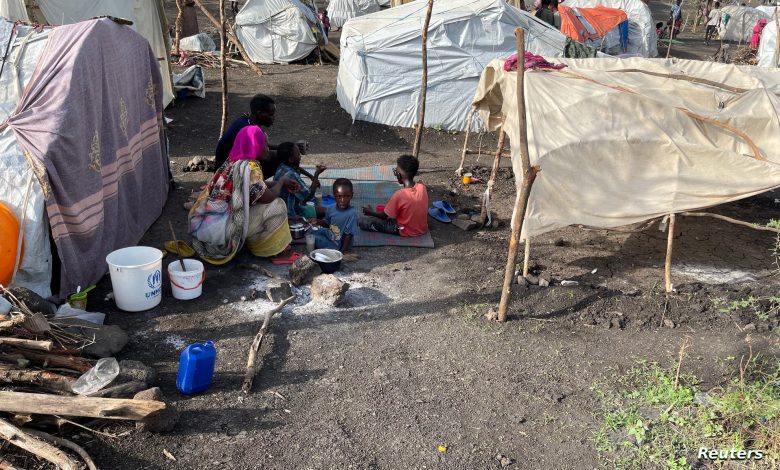Sudanese Refugees in Ethiopia: Tragic Situations and an unknown Fate

The Sudanese refugees who were forced by the situations that the country has been going through since the Rapid Support RSF Militia rebelled against the Sudanese Armed Forces SAF in April of last year to leave the country are living in tragic situations in the forests of Ethiopia, where they are surrounded by great dangers, represented by attacks by Ethiopian “Shifta” gangs, and the onset of autumn and rainfall.
Sudan Events – Aya Ibrahim
Rejection of a proposal:
Deaths among Sudanese refugees in the (Olala) forests in western Ethiopia has increased significantly following the deterioration of the humanitarian situation where they reside in one of the forests, at a time when they rejected a proposal from the Ethiopian government and an international organization to transfer them to a new area in the Amhara region,
where more than 6,000 Sudanese refugees, including about 2,300 women and children, are facing harsh conditions inside the “Olala” forests in the Amhara region in western Ethiopia.
Government Slowdown :
The Sudanese refugees inside the “Oulala” forests lack the elements of protection, which prompted them to demand the concerned authorities to transfer them to a third country or return them to Sudan, affirming that all parties did not fulfill their promises and evaded their support, at a time when the Sudanese Embassy in Addis Ababa is slow to follow up on the refugee crisis and provide assistance to them.
A Call for peace :
The lawyer and human rights defender, Al-Moez Hadra, points out that what is happening to Sudanese refugees in Ethiopia is no different from what is happening to them in other countries in terms of suffering in light of the inaction of the international community and United Nations UN organizations, even the countries that committed to support, their support is insufficient.
Hazrat told Sudan Events , “We should not look at the appearance of the crisis that resulted from the war, so we call on the two parties to the war to resort to peace until the suffering of the Sudanese stops.”
He affirmed that stopping the war is the basis and that as long as the war continues, the number of refugees fleeing the war and suffering will increase, especially since the war is expanding, so the displacement and asylum movement will not stop.
Multiple statistics :
A report by the Sudanese Refugee Coordination Committee in Amhara region revealed that more than 2,000 children between the ages of 3 months and 17 years suffer from malnutrition, diarrhea and colds due to their dependence on one type of food, in addition to 1,000 refugees, including children and the elderly, suffering from various diseases, in addition to 2,135 needing emergency medical care, and more than 30 people suffering from chronic diseases, while 45 children died during the past months as a result of malnutrition at the refugee reception point in “Transit-Metma.” The report also confirmed that more than 6,080 refugees stuck in the “Oulala” forest are suffering from tragic conditions while humanitarian organizations stand by The World community organizations, the countries affiliated with the United Nations UN and its agencies are watching.
Beginning of A crisis :
The Sudanese refugee crisis in Ethiopia began in early May, when they left the “Oulala” camp heading to Sudan due to the deteriorating security situation and the ongoing attacks.
On their way back on foot, Ethiopian security forces intercepted them and prevented them from crossing, forcing them to remain in the Komer camp.
Assigning A mechanism :
The Humanitarian Emergency Committee announced two days ago the assignment of a mechanism consisting of the relevant authorities to make the necessary arrangements for shelter and emergency aid to receive Sudanese refugees in the Amhara region in the Olala and Komer camps and the surrounding area, inside Sudanese territory.
During a meeting headed by Finance Minister Jibril Ibrahim, it affirmed coordination with the official Ethiopian authorities and the High Commissioner for Refugees UNHCR through the Sudanese Embassy in Addis Ababa to find out the appropriate ways to accomplish the task of voluntary return for those wishing to return and to discuss ways to deport them.
The UNHCR received about 21,000 Sudanese who fled to Ethiopia after the outbreak of war in the “Transit” camp. After the increase in the number of refugees from Sudan and other nationalities, the UNHCR opened the “Oulala” and “Komer” camps to receive Sudanese refugees.
The two camps are located in the Amhara region, which is witnessing clashes between the Ethiopian army and the “Fano” militia.



